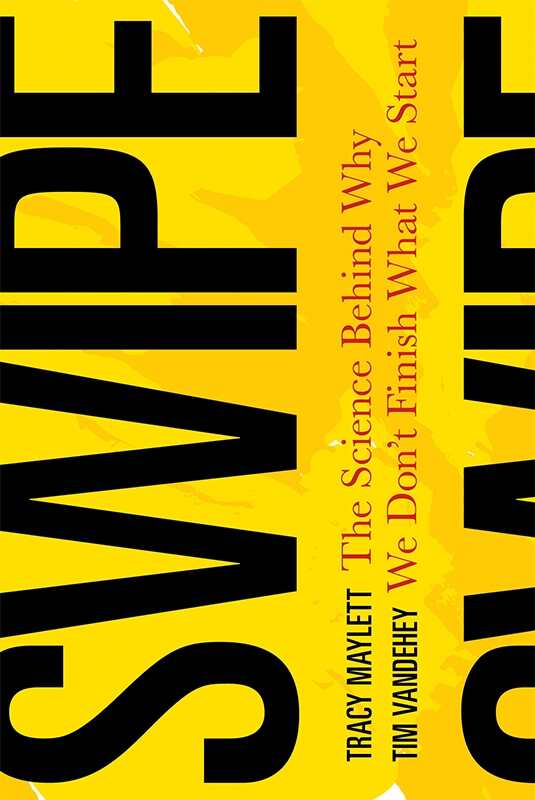Swipe
The Science Behind Why We Don't Finish What We Start
Engaging and supportive, Swipe is a psychologically considerate self-help text that identifies why people allow themselves to become distracted—and proposes solutions.
CEO Tracy M. Maylett and journalist Tim Vandehey’s self-help book Swipe explains people’s growing inclination to seek escapism over engagement and thus fail to complete their projects.
Drawing on the metaphor of a Tinder swipe with sometimes repetitious zeal, the book’s swipe is defined as an avoidance tactic that takes on a number of guises. People might be using it to avoid difficult work, emotional engagement, fear of failure, discomfort, or boredom. The consequence, though, is that they are distracted from their worthwhile work. Through a series of studies and examples, the text reveals how harmful these distractions can be for work, relationships, and personal growth.
The early sections of the book are devoted to establishing what the swipe is and sharing the many ways that it might be interpreted. The text gathers its strength once it settles into its primary arguments, looking closely at the impact of the so-called swipe and its specific effects. Here, the biology and psychology that underpin the human impulse toward distraction and its varied impacts are discussed in more detail, making way for broader implications about the ways in which technology impacts human behavior.
The book’s discussion of the ambiguity deficit posits that people are increasingly uncomfortable with ambiguity as a result of the curated digital world in which most reside. When starting a new project, a great deal of ambiguity exists, though, making it easier for people to abandon what they start. Other examples explore the impact of attention asymmetry and the differences between execution and circumstance. As new points are added, the argument becomes more compelling; the swipe has the potential to undermine the importance of process completion and the discoveries and opportunities for growth that it affords.
Maylett and Vandehey outline the issues with the swipe well; they also articulate solutions to the impulse in clear, direct language embellished by gentle humor. Most solutions are numbered or bulleted for easy access. Important terms are italicized, and headings are used well to make it easier to access information with ease. Short “Nerd Alerts!” represent bite-sized statistics of academic interest to break up the text. The book concludes with well-documented notes that support the multitude of science, psychology, and even engineering research cited throughout the text.
Engaging and supportive, Swipe is a psychologically considerate self-help text that identifies the reasons behind derailing distractions and shares ways to combat them both in the workplace and in private lives.
Reviewed by
Camille-Yvette Welsch
Disclosure: This article is not an endorsement, but a review. The publisher of this book provided free copies of the book and paid a small fee to have their book reviewed by a professional reviewer. Foreword Reviews and Clarion Reviews make no guarantee that the publisher will receive a positive review. Foreword Magazine, Inc. is disclosing this in accordance with the Federal Trade Commission’s 16 CFR, Part 255.

